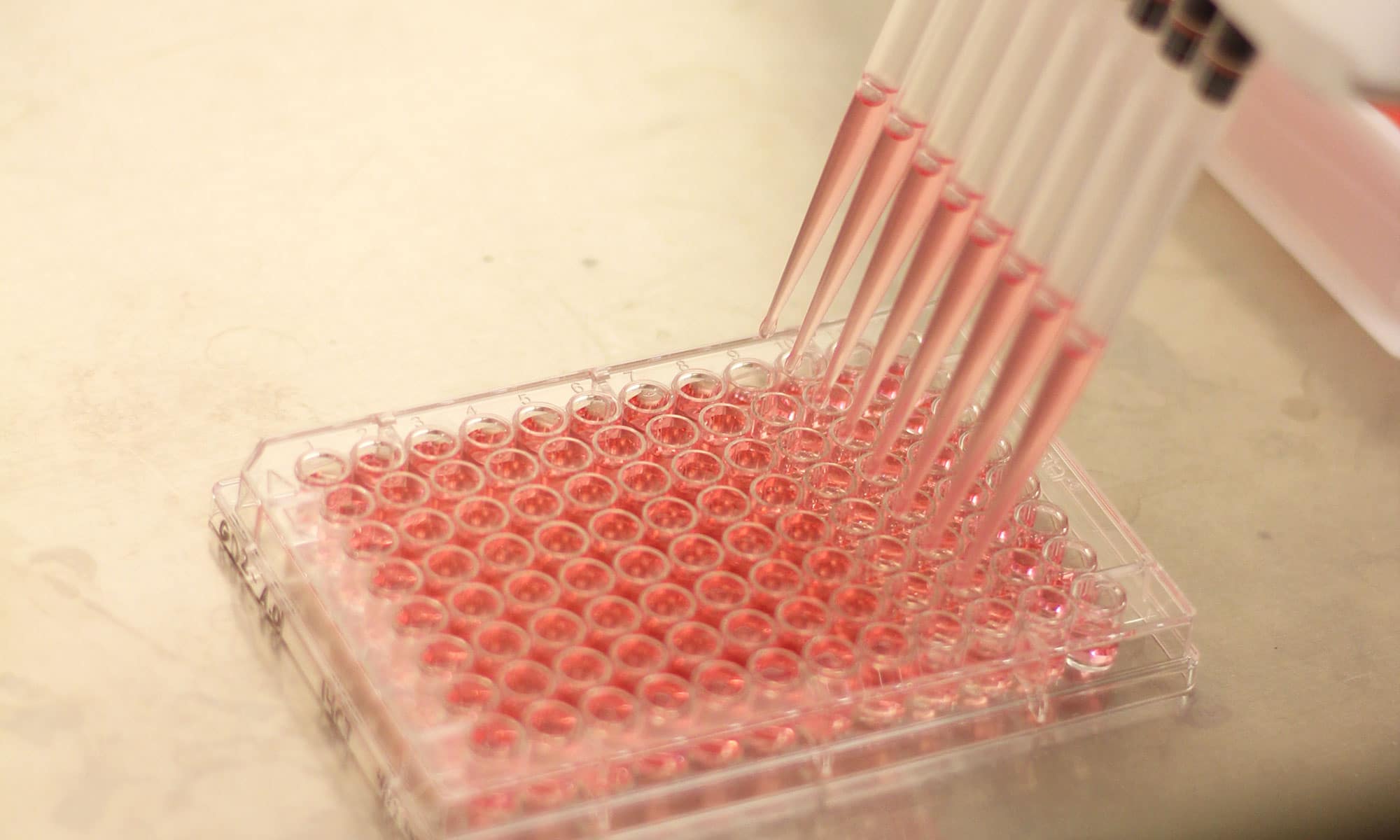

ANTIGEN DESIGN AND HYBRIDOMA DEVELOPMENT
Once we have agreed on an approach, mice are injected with antigen to produce an immune response. The specific strain of mice and the design of the antigen are chosen based on our many years of experience and your end-use for the antibody. Once the mice have an acceptable serum titer of specific antibodies, antibody-producing cells are fused to myeloma cells to produce “hybridoma” cells.


HYBRIDOMA SELECTION, VARIABLE REGION SEQUENCING, AND CRYOSTORAGE
Our standard hybridoma selection assay is a high throughput assay using hybridoma cell supernatants to select hybridoma cells producing antigen-specific antibody. Additional alternative assay methods narrow the selection of antibody-producing clones to a manageable number. After several rounds of subcloning and assaying, the light and heavy chain variable regions can be sequenced to insure antibodies from different clones have unique variable regions. Cell archival and storage under liquid nitrogen conditions assures the integrity and availability of selected clones for future use.


ANTIBODY PRODUCTION
Our antibody production services can prepare purified antibody in amounts ranging from milligrams to grams. If necessary, cells are adapted to serum-free conditions to eliminate contamination of bovine immunoglobulin from fetal calf serum. We believe this method of production is superior to antibody produced from ascites. Purified antibody can be prepared to customer specifications, including purification under low-endotoxin conditions, labeling of the antibody with biotin or fluorescent dyes, construction and expression of recombinant antibody in HEK cells, fragmentation of antibody to produce Fab or F(ab)’2 or attachment of purified antibody to Sepharose for antigen purification.


ANTIBODY CHARACTERIZATION AND ASSAY DEVELOPMENT
Once the antibodies are purified, they can be further characterized and modified to assure a proper match to your specific diagnostic or therapeutic end-use. We offer a number of services to meet customer needs including development of sandwich ELISA, determination of antibody-antigen association rate, effect of solution conditions (pH, ionic strength, divalent metal ions, etc.) on antigen binding, competitive inhibition by similar analytes for antibody binding, and pharmacokinetic experiments in mice.

